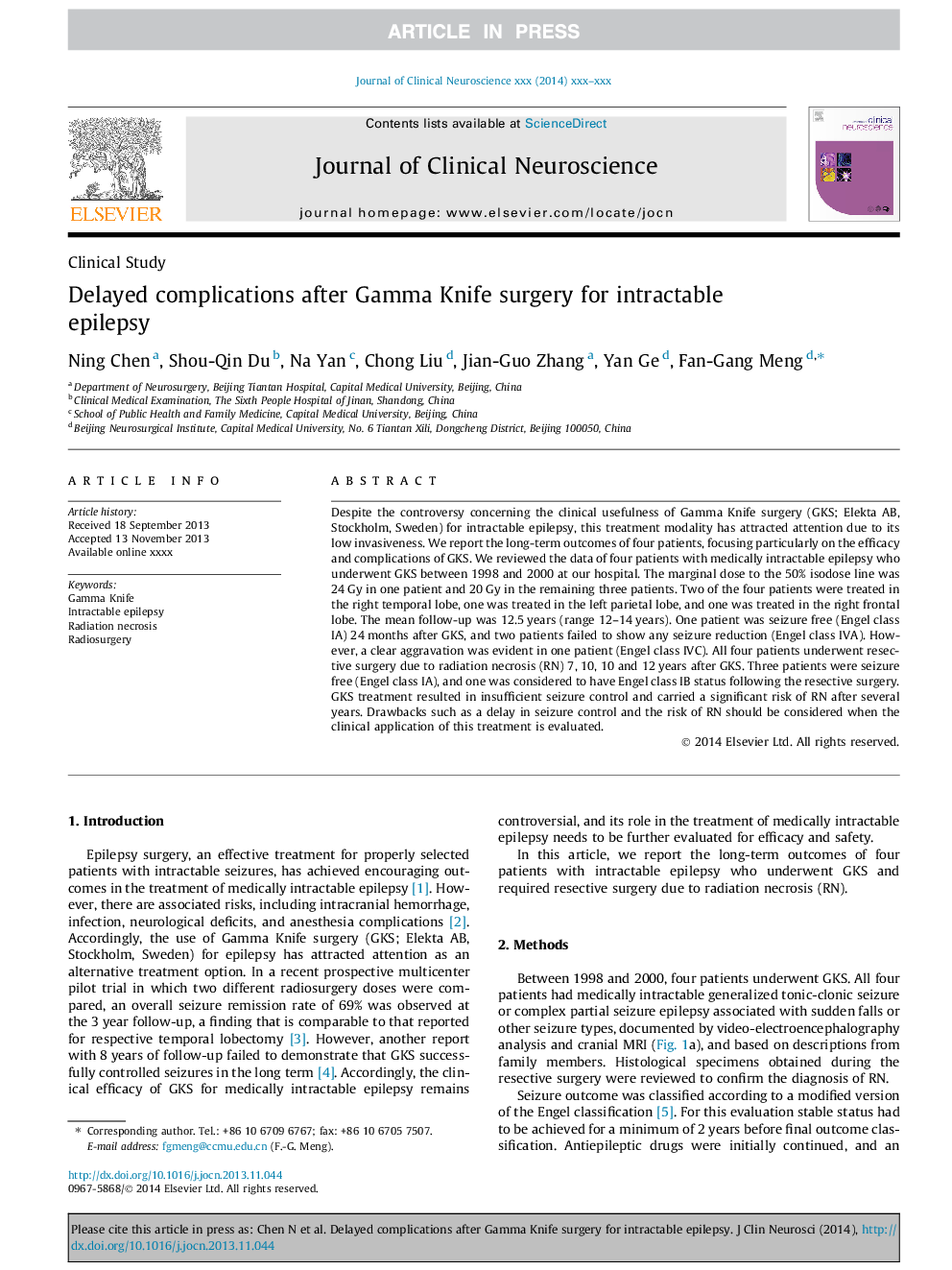| Article ID | Journal | Published Year | Pages | File Type |
|---|---|---|---|---|
| 6019566 | Journal of Clinical Neuroscience | 2014 | 4 Pages |
Abstract
Despite the controversy concerning the clinical usefulness of Gamma Knife surgery (GKS; Elekta AB, Stockholm, Sweden) for intractable epilepsy, this treatment modality has attracted attention due to its low invasiveness. We report the long-term outcomes of four patients, focusing particularly on the efficacy and complications of GKS. We reviewed the data of four patients with medically intractable epilepsy who underwent GKS between 1998 and 2000 at our hospital. The marginal dose to the 50% isodose line was 24Â Gy in one patient and 20Â Gy in the remaining three patients. Two of the four patients were treated in the right temporal lobe, one was treated in the left parietal lobe, and one was treated in the right frontal lobe. The mean follow-up was 12.5Â years (range 12-14Â years). One patient was seizure free (Engel class IA) 24Â months after GKS, and two patients failed to show any seizure reduction (Engel class IVA). However, a clear aggravation was evident in one patient (Engel class IVC). All four patients underwent resective surgery due to radiation necrosis (RN) 7, 10, 10 and 12Â years after GKS. Three patients were seizure free (Engel class IA), and one was considered to have Engel class IB status following the resective surgery. GKS treatment resulted in insufficient seizure control and carried a significant risk of RN after several years. Drawbacks such as a delay in seizure control and the risk of RN should be considered when the clinical application of this treatment is evaluated.
Related Topics
Life Sciences
Neuroscience
Neurology
Authors
Ning Chen, Shou-Qin Du, Na Yan, Chong Liu, Jian-Guo Zhang, Yan Ge, Fan-Gang Meng,
